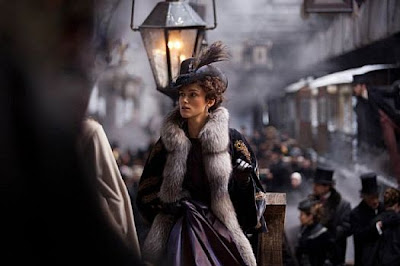And so begins Alps, a film that to call strange would be an excerise in futility. A film with opening and closing scenes seemingly unconnected to its main premise; a group known after the ...mountains hired to act out the lives of the deceased to ease the pain of the bereaved. But it does make some sense when remembering that the film was made by Georgios Lanthimos, the man who gave us the wonderfully severe Dogtooth. That film, like this one, drops us into a world that appears like our own but is more like some kind of alternative reality in which common existential matters are played out on a stage. And like Dogtooth the film drops the viewer into a world of regulation, of rules that only reveal themselves slowly but rarely fully. A world where hierarchies and relations have already been defined, we merely observe what happens when these chains of command and protocol are challenged.
One of Dogtooth's many shocking scenes was one of a woman being beaten severely (albeit briefly) with a VCR. Why? Because she brought 'unacceptable' material (a VHS copy of Rocky) into the house of what can only be described as her employer. Lanthimos seems to understand fully that life's assemblance of order exists soley because of violence - and as the opening scene described here - more precisely the threat of violence.
The group Alps - named by leader Mount Blanc for the mountains' irreplacable stature that could replace other natural monuments if nessessasry - ask the grief stricken people who desire their service a multitude of monotonous questions such as who the deceased's favourite actors were, favourite actress, what their favourite food was. These questions are pointlessly shallow yet seem important in the cynical ethos of the film, as it seems to point to how much we amount to living or dead.
As we witness more and more reinactions of Alps customer's lives, the lines that divide the members cold method acting begins to blur, as shown through an unnamed female member (Aggeliki Papoulia) who disobeys Mount Blanc's ground rules. The actress begins to pine for the fabricated lives bought by the customers instead of her own; a lonely existence looking after her father that mirrors all to closely the awkward infamiliarity of her work. She simply isn't happy in her own skin, how many of us are? How much of our own personality is ours? the percentage, I'd imagine, is on the low side. Are we (or at least many of us) just fleshy sponges that soak up vaccuous pop culture?
The film's set up and concept is an intrigueing one and one I expected to have more of a cautionary approach, or at least a little more pathos contained. There certainly are moments of poignancy, such as a regular client; an old blind lady who two Alps members act out the roles of her best friend and husband. A venture that reveals how we hang on to and obsess over even the most hurtful of memories. But largely Lanthimos's aim is rather despairing (though interestingly so) as his film looks to decipher how much worth is in our lives, the level of pain we leave behind for loved ones, along with the faint whisper we leave in the grand makeup of the cosmos. It's a cynical affair but ln this filmmaker's hands is never less than compelling in its loose absurdity and its reticence:
- How did such an eclectic mix of people of all ages come to form Alps?
- How does Mount Blanc hold his position as leader? He clearly holds intimidating authority.
- No one is enjoying the job, yet no one quits. Why?
- Did the member's legit day jobs come before or after the founding of Alps? Members working in the hospital seem to be implanted to hone in on grieving possible future clients.
- Why does is matter who drinks out of whose coffee mug in the staff room?
All these aspects are everything and yet not actually important. The absence of set-up and closure is what makes it such an insatiably engrossing and intense affair.
Alps questions the unknowable nature of the human condition and asks how little there might be to know, anyway. It's a horrible thought that those you love, when asked to describe you in death, might say; he/she liked tennis, Morgan Freeman, and had a slight leaning towards pasta. Does it all amount to this?














